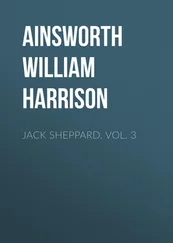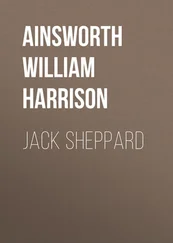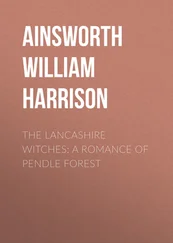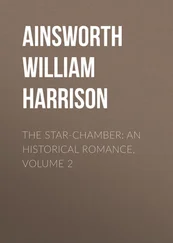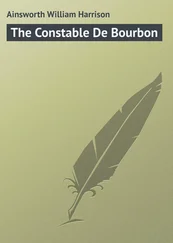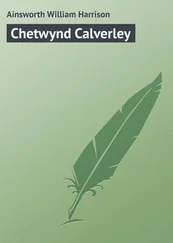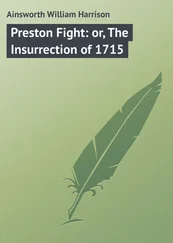W. Ainsworth - Rookwood
Здесь есть возможность читать онлайн «W. Ainsworth - Rookwood» весь текст электронной книги совершенно бесплатно (целиком полную версию без сокращений). В некоторых случаях можно слушать аудио, скачать через торрент в формате fb2 и присутствует краткое содержание. Жанр: Старинная литература, на русском языке. Описание произведения, (предисловие) а так же отзывы посетителей доступны на портале библиотеки ЛибКат.
- Название:Rookwood
- Автор:
- Жанр:
- Год:неизвестен
- ISBN:нет данных
- Рейтинг книги:4 / 5. Голосов: 1
-
Избранное:Добавить в избранное
- Отзывы:
-
Ваша оценка:
- 80
- 1
- 2
- 3
- 4
- 5
Rookwood: краткое содержание, описание и аннотация
Предлагаем к чтению аннотацию, описание, краткое содержание или предисловие (зависит от того, что написал сам автор книги «Rookwood»). Если вы не нашли необходимую информацию о книге — напишите в комментариях, мы постараемся отыскать её.
Rookwood — читать онлайн бесплатно полную книгу (весь текст) целиком
Ниже представлен текст книги, разбитый по страницам. Система сохранения места последней прочитанной страницы, позволяет с удобством читать онлайн бесплатно книгу «Rookwood», без необходимости каждый раз заново искать на чём Вы остановились. Поставьте закладку, и сможете в любой момент перейти на страницу, на которой закончили чтение.
Интервал:
Закладка:
"Is there anyone within that place besides yourself?" said the major, making a movement thither.
"No, sir, nobody at all," answered Coates, hastily, fancying at the same time that he heard the click of the pistol that was to be his death-warrant.
"How came you here, sir?" demanded Ranulph.
"Do you mean in this identical spot?" replied Coates, evasively.
"You can have no difficulty in answering that question," said the major, sternly.
"Pardon me, sir. I find considerable difficulty in answering any question, situated as I am."
"Have you seen Miss Mowbray?" Ranulph asked eagerly.
"Or my mother?" said the major, in the same breath.
"Neither," replied Coates, rather relieved by these questions.
"I suspect you are deceiving us, sir," said the major. "Your manner is confused. I am convinced you know more of this matter than you choose to explain; and if you do not satisfy me at once, fully and explicitly, I vow to Heaven—" and the major's sword described a glittering circle round his head.
"Are you privy to their concealment?" asked Ranulph. "Have you seen aught of them, or of Luke Bradley?"
"Speak, or this moment is your last," said the major.
"If it is my last, I cannot speak," returned Coates. "I can make neither head nor tail of your questions, gentlemen."
"And you positively assure me you have not seen Mrs. Mowbray and her daughter?" said Ranulph.
Turpin here winked at Coates. The attorney understood him.
"I don't positively assert that," faltered he.
"How!—you have seen them?" shouted Ranulph.
"Where are they?—in safety—speak!" added the major.
Another expressive gesture from the highwayman communicated to the attorney the nature of his reply.
"Without, sir—without—yonder," he replied. "I will show you myself. Follow, gentlemen, follow." And away scampered Coates, without once venturing to look behind him.
In an instant the ruined hall was deserted, and Turpin alone left behind. In the excitement of the moment, his presence had been forgotten. In an instant afterwards the arena was again occupied by a company equally numerous. Rust and Wilder issued from their hiding-places, followed by a throng of the gipsy crew.
"Where is Sir Luke Rookwood?" asked Turpin.
"He remains below," was the answer returned.
"And Peter Bradley?"
"Stays there likewise."
"No matter. Now make ready, pals. Give 'em one shout—Hurrah!"
Ranulph Rookwood and his companions heard this shout. Mr. Coates had already explained the stratagem practised upon them by the wily highwayman, as well as the perilous situation in which he himself had been placed; and they were in the act of returning, to make good his capture, when the loud shouts of the crew arrested them. From the clamour, it was evident that considerable reinforcement must have arrived from some unlooked for quarter; and, although burning to be avenged upon the audacious highwayman, the major felt it would be a task of difficulty, and that extreme caution could alone insure success. With difficulty restraining the impatience of Ranulph, who could scarcely brook these few minutes of needful delay, Major Mowbray gave particular instructions to each of the men in detail, and caused several of them to dismount.
By this arrangement Mr. Coates found himself accommodated with a steed and a pair of pistols, with which latter he vowed to wreak his vengeance upon some of his recent tormentors. After a short space of time occupied in this manner, the troop slowly advanced towards the postern, in much better order than upon the previous occasion; but the stoutest of them quailed, as they caught sight of the numerous gipsy gang drawn out in battle array within the abbey walls. Each party scanned the other's movements in silence and wonder, anxiously awaiting, yet in a measure dreading, their leader's signal to begin. That signal was not long delayed. A shot from the ranks of Rookwood did instant and bitter execution. Rob Rust was stretched lifeless upon the ground. Nothing more was needed. The action now became general. Fire-arms were discharged on both sides, without much damage to either party. But a rush being made by a detachment of horse, headed by Major Mowbray, the conflict soon became more serious.
The gipsies, after the first fire, threw aside their pistols, and fought with long knives, with which they inflicted desperate gashes, both on men and horses. Major Mowbray was slightly wounded in the thigh, and his steed receiving the blow intended for himself, stumbled, and threw his rider. Luckily for the major, Ranulph Rookwood was at hand, and with the butt-end of a heavy-handled pistol felled the ruffian to the earth, just as he was upon the point of repeating the thrust.
Turpin, meanwhile, had taken comparatively a small share in the conflict. He seemed to content himself with acting upon the defensive, and, except in the case of Titus Tyrconnel, whom, espying amidst the crowd, he had considerably alarmed by sending a bullet through his wig, he did not fire a single shot. He also succeeded in unhorsing Coates, by hurling, with great dexterity, the empty pistol at his head. Though apparently unconcerned in the skirmish, he did not flinch from it, but kept his ground unyieldingly. "A charmed life" he seemed to bear; for amid the shower of bullets, many of which were especially aimed at himself, he came off unhurt.
"He that's born to be hanged will never be drowned, that's certain," said Titus. "It's no use trying to bring him down. But by Jasus! he's spoiled my best hat and wig, anyhow. There's a hole in my beaver as big as a crown piece."
"Your own crown's safe, and that's some satisfaction," said Coates; "whereas mine has a bump on it as big as a swan's egg. Ah! if we could only get behind him."
The strife continued to rage without intermission; and though there were now several ghastly evidences of its fury, in the shape of wounded men and slaughtered and disabled horses, whose gaping wounds flooded the turf with gore, it was still difficult to see upon which side victory would eventually declare herself. The gipsies, though by far the greater sufferers of the two, firmly maintained their ground. Drenched in the blood of the horses they had wounded, and brandishing their long knives, they presented a formidable and terrific appearance, the effect of which was not at all diminished by their wild yells and savage gesticulations.
On the other hand, headed by Major Mowbray and Ranulph, the troop of yeomen pressed on undauntedly; and where the sturdy farmers could get a firm gripe of their lithe antagonists, or deliver a blow with their ox-like fists, they seldom failed to make good the advantage which superior weight and strength gave them. It will thus be seen that as yet they were pretty well matched. Numbers were in favour of the gipsies, but courage was equally distributed, and, perhaps, what is emphatically called "bottom," was in favour of the rustics. Be this as it may, from what had already occurred, there was every prospect of a very serious termination to the fray.
From time to time Turpin glanced to the entrance of the cell, in the expectation of seeing Sir Luke Rookwood make his appearance; and, as he was constantly disappointed in his expectation, he could not conceal his chagrin. At length he resolved to despatch a messenger to him, and one of the crew accordingly departed upon this errand. He returned presently with a look of blank dismay.
In our hasty narrative of the fight we have not paused to particularise, neither have we enumerated, the list of the combatants. Amongst them, however, were Jerry Juniper, the knight of Malta, and Zoroaster. Excalibur, as may be conceived, had not been idle; but that trenchant blade had been shivered by Ranulph Rookwood in the early stage of the business, and the knight left weaponless. Zoroaster, who was not merely a worshipper of fire, but a thorough milling-cove, had engaged to some purpose in a pugilistic encounter with the rustics; and, having fought several rounds, now "bore his blushing honours thick upon him."
Читать дальшеИнтервал:
Закладка:
Похожие книги на «Rookwood»
Представляем Вашему вниманию похожие книги на «Rookwood» списком для выбора. Мы отобрали схожую по названию и смыслу литературу в надежде предоставить читателям больше вариантов отыскать новые, интересные, ещё непрочитанные произведения.
Обсуждение, отзывы о книге «Rookwood» и просто собственные мнения читателей. Оставьте ваши комментарии, напишите, что Вы думаете о произведении, его смысле или главных героях. Укажите что конкретно понравилось, а что нет, и почему Вы так считаете.

